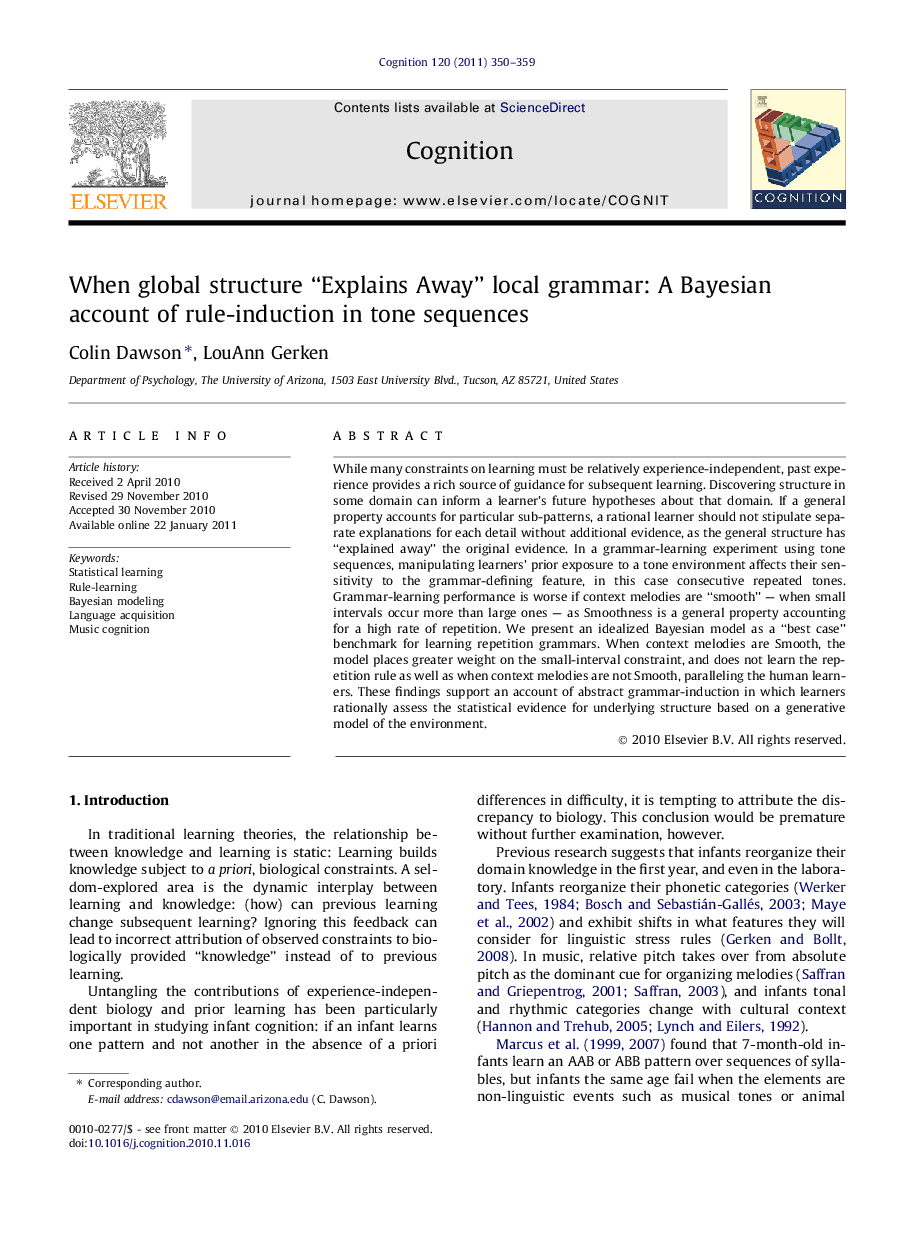| Article ID | Journal | Published Year | Pages | File Type |
|---|---|---|---|---|
| 926954 | Cognition | 2011 | 10 Pages |
While many constraints on learning must be relatively experience-independent, past experience provides a rich source of guidance for subsequent learning. Discovering structure in some domain can inform a learner’s future hypotheses about that domain. If a general property accounts for particular sub-patterns, a rational learner should not stipulate separate explanations for each detail without additional evidence, as the general structure has “explained away” the original evidence. In a grammar-learning experiment using tone sequences, manipulating learners’ prior exposure to a tone environment affects their sensitivity to the grammar-defining feature, in this case consecutive repeated tones. Grammar-learning performance is worse if context melodies are “smooth” — when small intervals occur more than large ones — as Smoothness is a general property accounting for a high rate of repetition. We present an idealized Bayesian model as a “best case” benchmark for learning repetition grammars. When context melodies are Smooth, the model places greater weight on the small-interval constraint, and does not learn the repetition rule as well as when context melodies are not Smooth, paralleling the human learners. These findings support an account of abstract grammar-induction in which learners rationally assess the statistical evidence for underlying structure based on a generative model of the environment.
